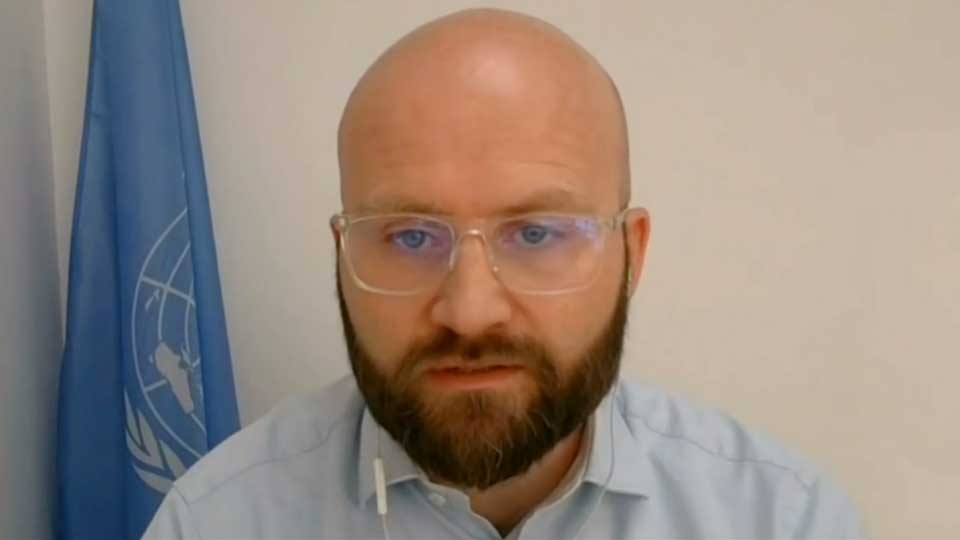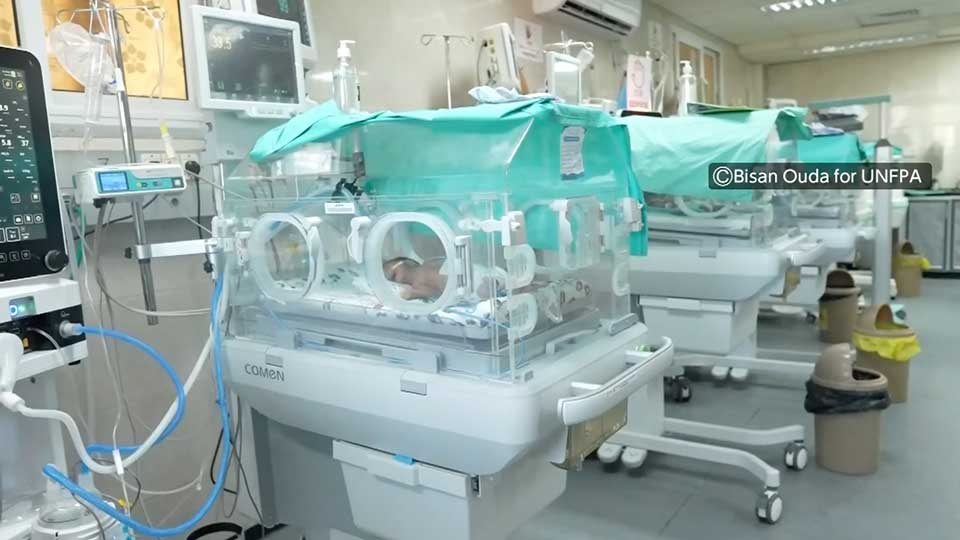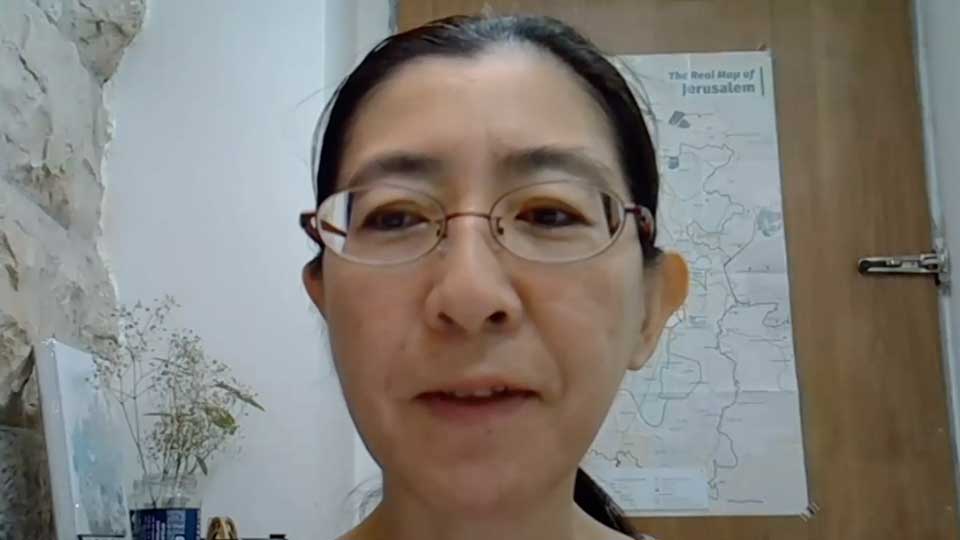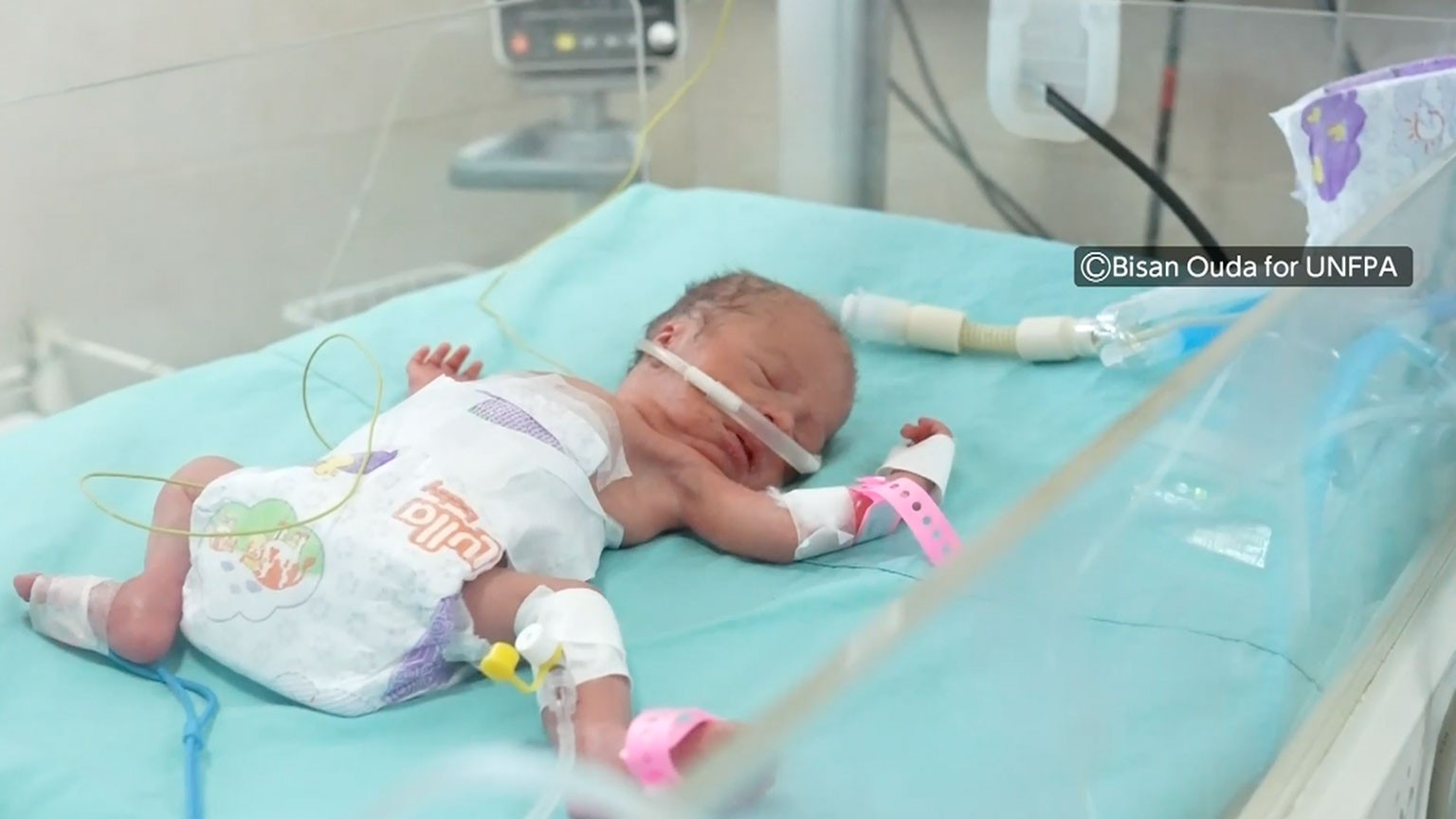Dominic Allen serves as the United Nations Population Fund (UNFPA) representative for Palestine. NHK World interviewed him on October 31.

Allen estimates that approximately 50,000 women are now pregnant in Gaza and there are about 150 births daily. He says, "The healthcare system, which is significantly crippled, is on the brink of collapse and they're facing unthinkable challenges."

Footage provided by UNFPA shows the situation at Shifa hospital — one of Gaza's largest medical facilities — on October 26. Allen says an increasing number of babies are now being born prematurely and must be cared for in Shifa's neonatal intensive care unit. He's heard reports that the situation is similar at other hospitals across Gaza.

According to Allen, some doctors say expectant mothers have been affected by the fear of combat and the need to repeatedly evacuate.
"We've had reports of caesarean sections ... being performed without anesthesia," says Allen. He adds that water and medical supplies are also in extremely short supply.
NHK World also interviewed Kimura Mariko, who works for the nongovernmental organization Japan International Volunteer Center and is based in Jerusalem.

Kimura is helping women and children in the Gaza Strip in collaboration with Gaza-based associations.
Kimura says she's been receiving messages from mothers in Gaza telling her about their difficult situations as they're forced to flee with their children to new locations. The messages typically say, "We've got a few bottles of water but no bread" and "My children eat only once a day."
Kimura received a video from a friend who just gave birth last month and is sheltering in central Gaza.
The footage shows a severely damaged neighboring house and Kimura's friend says the residents died in an air attack.
Kimura says, "These women are surviving under circumstances where they're prepared to die at any moment. If breast-feeding mothers are not in good health, it's difficult for them to provide milk."
She adds, "The longer this situation continues, the more their physical and mental health will deteriorate."

